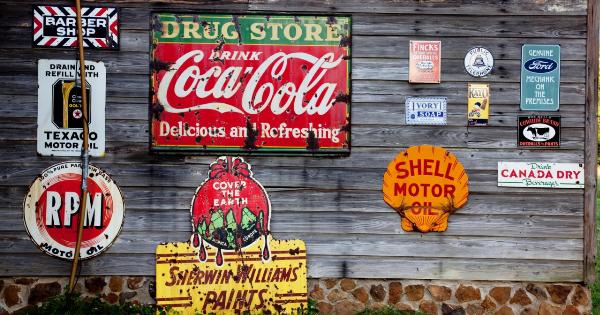Our skin is not merely a covering for our body; it is a reflection of our experiences, our health, and our individuality. Each person’s skin undergoes a unique journey, influenced by factors such as genetics, environment, lifestyle, and emotions.
Just like a book, our skin tells a story that is waiting to be read and understood.
The Genetic Makeup
Our skin’s story begins with our genetic makeup. Genes play a crucial role in determining our skin type, color, and texture. Some individuals are born with a predisposition to certain conditions, such as acne or eczema.
Others may inherit a tendency towards certain skin characteristics, such as oily or dry skin.
The Impact of Environment
The environment we live in leaves its mark on our skin’s story. Ultraviolet (UV) radiation from the sun, for example, is a major environmental factor that affects our skin’s health.
Prolonged exposure to the sun’s rays can lead to sunburn, premature aging, and an increased risk of skin cancer.
Similarly, air pollution, particularly in urban areas, can have a detrimental effect on our skin. Toxins and free radicals present in the polluted air can cause inflammation, acne, and accelerate the aging process.
On the other hand, living in a clean and unpolluted environment can promote healthier and more radiant skin.
Lifestyle Choices
Our lifestyle choices also shape the story told by our skin. A balanced diet rich in vitamins, minerals, and antioxidants can nourish our skin from within, promoting a youthful and vibrant complexion.
On the contrary, a poor diet high in processed foods, sugars, and unhealthy fats can lead to skin problems such as acne, dullness, and inflammation.
Regular exercise increases blood circulation, which delivers oxygen and nutrients to the skin cells, improving their overall health and appearance.
Additionally, exercise promotes the production of endorphins, reducing stress levels, which can have a positive impact on the skin.
Another lifestyle factor is smoking, which has detrimental effects on the skin. Smoking damages collagen and elastin fibers, leading to premature wrinkles and a dull complexion.
It also reduces blood flow to the skin, depriving it of essential nutrients and oxygen.
The Impact of Emotions
Our emotions, both positive and negative, influence the well-being of our skin. Stress, for instance, can trigger various skin conditions, including acne, eczema, and psoriasis.
When we are stressed, our body releases stress hormones like cortisol, which can increase inflammation and oil production in the skin.
On the other hand, positive emotions and a happy state of mind can contribute to vibrant and glowing skin. When we experience joy or contentment, our body releases endorphins, which have been shown to reduce inflammation and promote skin healing.
The Signs of Aging
As we age, our skin’s story takes on a new chapter. The signs of aging, such as wrinkles, fine lines, and sagging skin, become more apparent.
This natural process is influenced by both intrinsic factors, such as genetics and hormonal changes, as well as extrinsic factors like sun exposure and lifestyle choices.
Collagen and elastin, two proteins responsible for maintaining the skin’s structure and elasticity, gradually decrease with age. This leads to the formation of wrinkles and a loss of firmness.
Additionally, the skin’s renewal process slows down, resulting in a duller complexion and a longer recovery time from skin damage.
The Influence of Skincare Routine
Our skincare routine plays a significant role in shaping the story told by our skin. Proper cleansing, moisturizing, and protection from the sun are essential steps towards maintaining healthy and vibrant skin.
Cleansing removes dirt, oil, and impurities that accumulate on the skin’s surface, preventing clogged pores and breakouts.
Moisturizing helps to hydrate the skin and maintain its natural moisture barrier, reducing the risk of dryness and premature aging. Lastly, protecting the skin from UV radiation with sunscreen or sunblock helps to prevent sun damage and reduce the risk of skin cancer.
Treating Skin Conditions
Some individuals may experience skin conditions that contribute to their skin’s story. Conditions such as acne, rosacea, eczema, and psoriasis can have a significant impact on a person’s self-esteem and overall well-being.
Fortunately, treatment options are available to manage these conditions and improve the appearance of the skin.
Consulting with a dermatologist or skincare professional can help determine the best course of action, which may include topical medications, lifestyle modifications, or more advanced treatments.
Embracing our Skin’s Story
It is important to remember that our skin’s story is unique to each individual. We should embrace and celebrate the journey that our skin has undergone, as it is a testament to our experiences, growth, and resilience.
While we can make choices and adopt habits that promote healthy skin, it is equally important to practice self-acceptance and self-love.
Our skin may have imperfections, scars, or signs of aging, but these are all part of our story and what makes us who we are.
Conclusion
Our skin tells a story that is as diverse and multifaceted as the individuals it adorns. From genetics to environment, lifestyle choices to emotions, our skin chronicles our unique experiences and reveals glimpses of our inner and outer well-being.
By understanding the various factors that shape our skin’s story, we can make informed decisions about how to care for and enhance its health and appearance.
Ultimately, embracing our skin’s story means embracing ourselves and the journey we have embarked upon.






























